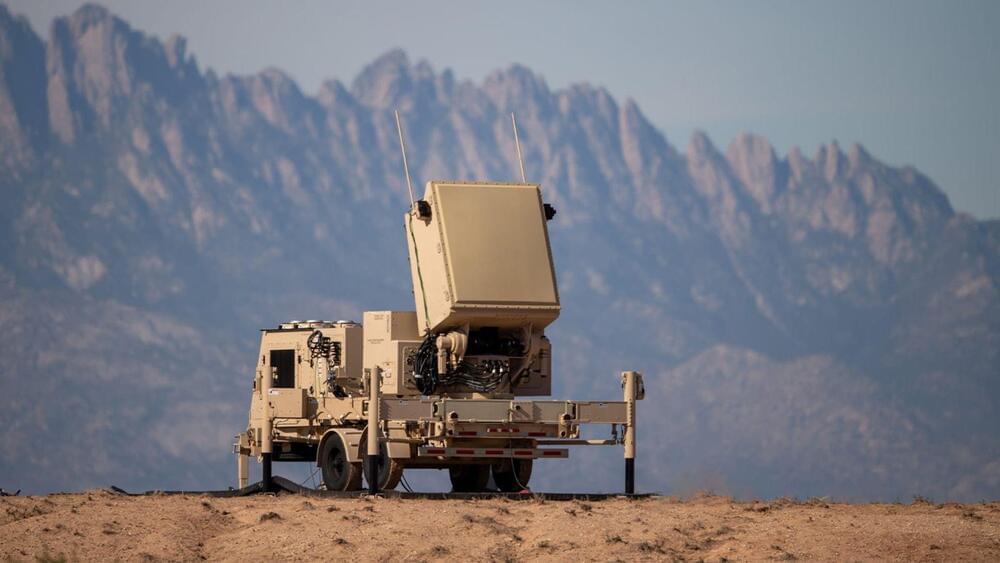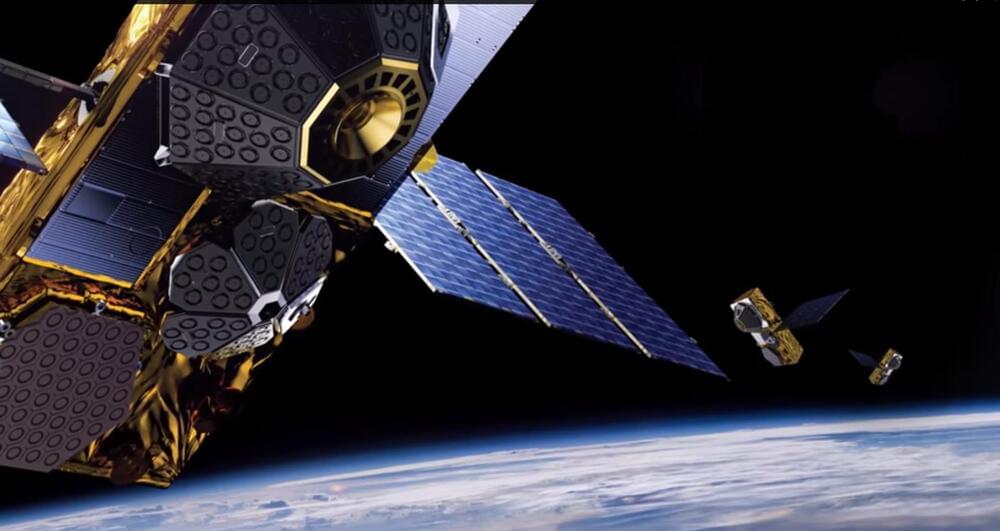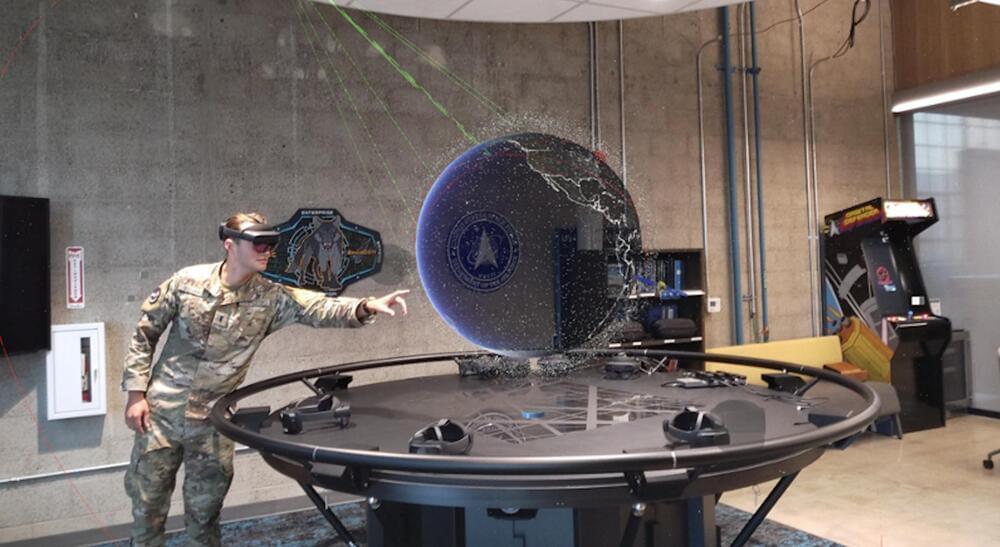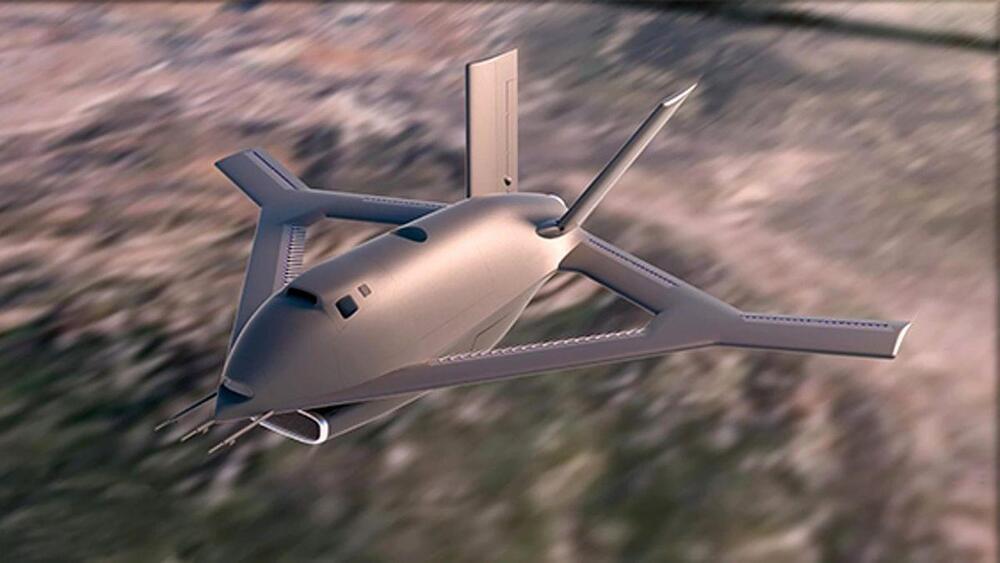The test occurred at White Sands Missile Range, where the radar showed operational performance and readiness.


According to Chinese news sources, Chinese scientists have allegedly harnessed plasma to develop a working energy shield for drones and other military tech.
Chinese scientists have allegedly developed an energy shield to protect some of its military assets, the South China Morning Post (SCMP) reports. Utilizing a special kind of plasma, the energy shield is designed to resist potentially harmful microwaves from damaging delicate electronics. If the claims of its existence are true, the new shield is a significant leap in directed energy technology, especially in the ongoing aerial-to-anti-aerial arms race.
Shields up!
High-powered electromagnetic radiation (EM), like microwaves, can compromise modern technology, including military chips fortified with special circuits, even at close range. These powerful waves can cause electrical interference in the chip and significantly increase its internal temperature. For this reason, sensitive electronics must be shielded and protected as much as possible.

U.S. Defense and State Department officials aim to meet with delegates from at least 50 other nations by mid-2024 to discuss the nascent framework and standards doctrine they’ve recently signed onto, pledging to “responsibly” develop and deploy artificial intelligence and autonomous military technologies, according to a top Pentagon policymaker.
Originally produced in early 2023, State spotlighted the Political Declaration on Responsible Military Use of AI and Autonomy in November — and confirmed then that more than 40 countries formally endorsed it.
“We’re up to 51 now, including the United States, and we’re proud of the fact that it’s not just the usual suspects,” Michael Horowitz, deputy assistant secretary of defense for force development and emerging capabilities, said on Tuesday during a webcast hosted by the Center for Strategic and International Studies.

WASHINGTON — The Space Development Agency confirmed on Jan. 8 that it awarded Rocket Lab a $515 million contract to build and operate 18 spacecraft that will be part of a low Earth orbit network of military satellites.
SpaceNews first reported on this contract award on Dec. 23 after the agreement was disclosed in a regulatory filing.
Rocket Lab becomes the third supplier of SDA’s Transport Layer Tranche 2 Beta satellites — projected to launch in mid-2027 — that will carry radios using the UHF (Ultra High Frequency) and S-band frequencies that military and intelligence units rely upon for voice and low-speed data transmissions.

WASHINGTON — The U.S. Space Force has inked a $19.8 million deal with Microsoft to develop a virtual and mixed-reality training environment. This agreement positions the tech giant in the burgeoning military simulation market and expands its Azure cloud’s reach into space applications.
The one-year contract announced Jan. 5 is to continue work on an augmented reality space simulation tool that Microsoft started developing last year for the Space Systems Command in Los Angeles.
Dubbed the Integrated, Immersive, Intelligent Environment (I3E), the system features Microsoft’s HoloLens headsets, Azure cloud platform, and a mesh framework for building shared AR experiences. Together, these technologies enable an interactive model of space with accurately scaled orbital objects that users can manipulate in real time.

DARPA and Aurora Flight Sciences have begun building the first full-scale X-65 aircraft to demonstrate a new method of flight control that uses no external moving parts.
The X-65 is an experimental jet being developed by the Control of Revolutionary Aircraft with Novel Effectors (CRANE) program overseen by DARPA, (Defense Advanced Research Projects Agency), the Pentagon’s research and development agency. Since the first aircraft were invented, they have been controlled by moving surfaces such as rudders, flaps, elevators and ailerons.

Weather forecasting is important for various sectors, including agriculture, military operations, and aviation, as well as for predicting natural disasters like tornados and cyclones. It relies on predicting the movement of air in the atmosphere, which is characterized by turbulent flows resulting in chaotic eddies of air.
However, accurately predicting this turbulence has remained significantly challenging owing to the lack of data on small-scale turbulent flows, which leads to the introduction of small initial errors. These errors can, in turn, lead to drastic changes in the flow states later, a phenomenon known as the chaotic butterfly effect.
To address the challenge of limited data on small-scale turbulent flows, a data-driven method known as Data Assimilation (DA) has been employed for forecasting. By integrating various sources of information, this approach enables the inference of details about small-scale turbulent eddies from their larger counterparts.

Reminds me of how the space shuttle moved in orbit. Great idea though hopefully they’ll pass it on to us civilians too. That could be very useful. Though the military sometimes passes their tech to us like the CIA is responsible for some medical science amazingly. Yes I was surprised.
DARPA has selected Aurora Flight Sciences to build a full-scale X-plane to demonstrate the viability of using active flow control (AFC) actuators for primary flight control. The award is Phase 3 of the Control of Revolutionary Aircraft with Novel Effectors (CRANE) program.
The X-65 flight is controlled by using jets of air from a pressurized source to shape the flow of air over the aircraft surface, with AFC effectors on several surfaces to control the plane’s roll, pitch, and yaw. Eliminating external moving parts is expected to reduce weight and complexity and to improve performance.
The X-65 will be built with two sets of control actuators – traditional flaps and rudders as well as AFC effectors embedded across all the lifting surfaces. This will both minimize risk and maximize the program’s insight into control effectiveness. The plane’s performance with traditional control surfaces will serve as a baseline; successive tests will selectively lock down moving surfaces, using AFC effectors instead.

LONDON, Jan 4 (Reuters Breakingviews) — Yemen’s Houthis are stirring up the Red Sea and shipping company investors. Denmark’s Maersk (MAERSKb. CO) and Germany’s Hapag-Lloyd (HLAG.DE), for example, have gained some $18 billion in market value since mid-December, as militant attacks shut the Suez Canal, causing freight rates to double. Yet hopes for a lasting boost may be disappointed.
Maersk this week decided to shun the Suez Canal indefinitely, where 12% of global trade passes through. That’s after one of the $35 billion group’s vessels narrowly escaped a hijacking thanks to U.S. helicopters, in turn prompting Iran, which backs the Houthi rebels, to send in a warship. As a result, shipping groups are now re-routing major trade lanes including the Asia to Europe traffic around Africa’s Cape of Good Hope, which adds at least 10 days of travel time.
The extra time and riskiness of the journey has caused freight rates to soar. Asia to Europe prices, for example, have nearly doubled since mid-December to more than $4,000 per forty-foot equivalent unit (FEU), Freightos data showed as of Jan. 3. While that’s still a far cry from the more than 10-fold increase during the pandemic, the result should be a windfall for shipping groups.

The US is trying its best to slow China down.
However, an equally serious challenger has now emerged in the form of SEIDA, a Chinese startup founded by a veteran Silicon Valley software executive.
Liguo “Recoo” Zhang, the CEO of SEIDA, and three other Chinese-born colleagues left Siemens EDA, a U.S. unit of Siemens AG, aiming to break the foreign monopoly on Optical Proximity Correction (OPC) technology, reported Reuters.
The OPC tool is indispensable for designing advanced chips crucial for emerging technologies like artificial intelligence and quantum computing. SEIDA’s bold pitch attracted powerful Chinese investors, including Semiconductor Manufacturing International Corp (SMIC), a leading Chinese microchip maker with alleged ties to China’s military.